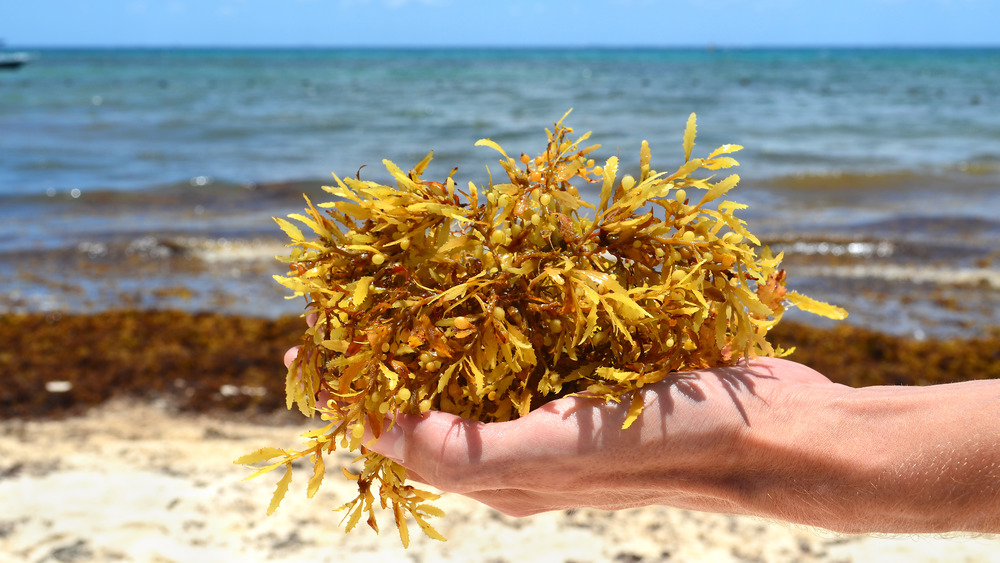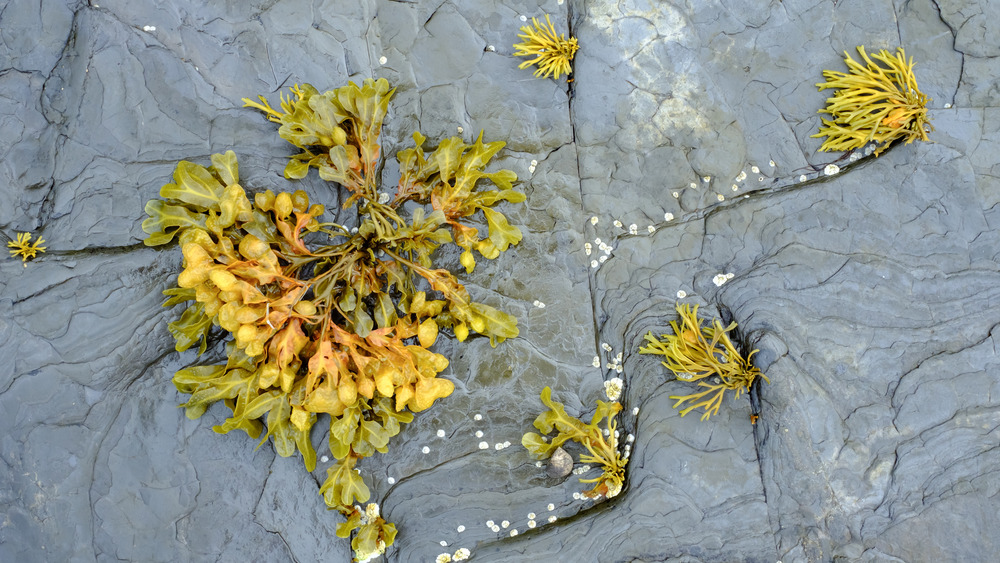Research Shows Seaweed Could Help Fight COVID-19
In the continuing fight against COVID-19, doctors and nurses may soon have a new, unpretentious tool in their medical arsenal — humble seaweed. Although it's been used medicinally for centuries in various parts of the world, in recent decades seaweed has fallen out of mainstream use. That may soon change.
Fiona Houston, founder and SeaEO of Edinburgh-based Mara Seaweed, told The Herald, "In the past, people throughout the British Isles understood the healing properties of seaweed — that's why seaweed tea and seaweed broth was administered by our ancestors to people recovering from flu and colds. But we forgot about it. Until now."
Researchers discovered that a commonly-used blood thinner, heparin, has proven to be effective in neutralizing the SARS-CoV-2 virus, which causes COVID-19 (via The Hill). After entering the body, spike proteins on the virus surface attach themselves to receptors on human cells, then insert their genetic material. Heparin, since it is chemically and structurally similar to normal cell receptors, serves as an effective 'decoy,' causing the virus to attach to it instead, thereby either preventing infection or lessening the severity of infection since less of the virus is able to infect human cells.
Seaweed extract outperformed remdesivir in lab trials
When researchers began looking for other, structurally-similar substances that could serve a similar purpose as a decoy for the virus, certain seaweeds were a natural choice. And in lab cell studies, a seaweed extract called RPI-27 outperformed the commonly-used antiviral remdesivir by about eight times in inhibiting viral activity (via Fast Company).
Jonathan Dordick, the lead researcher and a professor of chemical and biological engineering at Rensselaer Polytechnic Institute, said, "You've effectively blocked infection by serving as a decoy. Effectively, it interferes with and it pulls away the virus, and therefore the virus can't bind to the surface of the cell. Once it's latched on to by these compounds — these seaweed extracts or heparin — it likely decomposes and it would not be effective."
The study continues with 480 frontline medical workers in Wales, who have either been given a carragelose (seaweed) based nasal spray or a placebo (via Business News Wales). Results are expected to be published in March 2021. Dr. Zita Jessop, principal investigator for the clinical trial, said, "If the results of this randomized placebo-controlled clinical trial are positive as we expect, this has the potential to add an extra prevention strategy in the fight against COVID-19."


